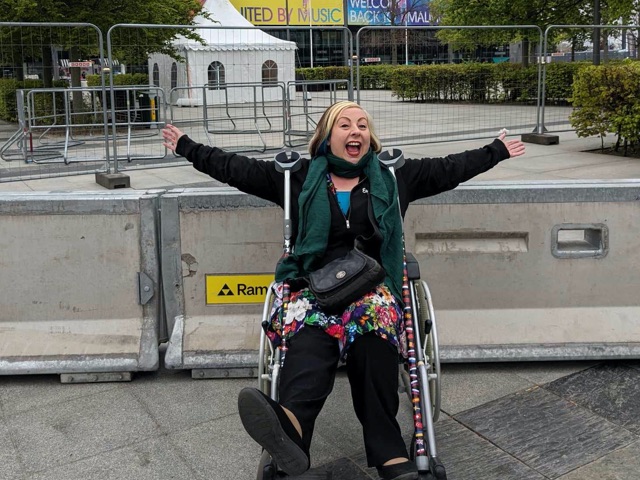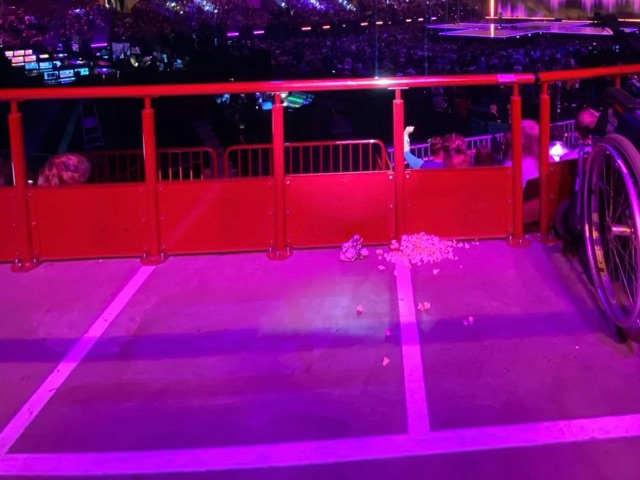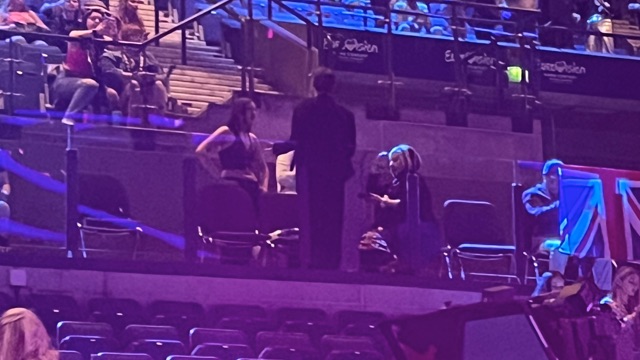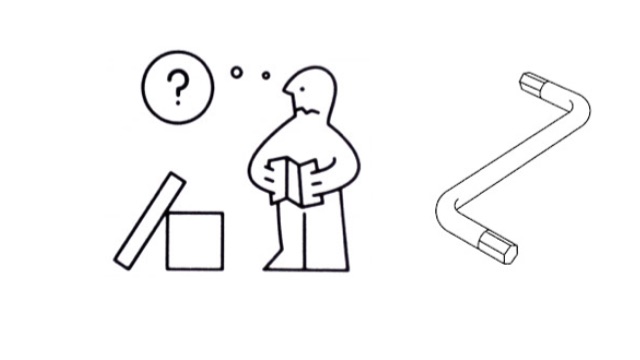When you walk into any IKEA in the world, you understand what to expect. You can find anything from affordable furniture to great kitchenware, and, of course, the famous meatballs. You can spend hours collecting things you want but probably don’t need; leave the place with a lighter wallet but a carload of new storage solutions. Things are all the same. Things are all organised. You have expectations, and they are met. This is why you shop at IKEA.
IKEA is also the home of the ever-popular Billy bookcase – sturdy, comes in various colours, easy to assemble, basic, yet flexible; Billy can be filled with extra shelving to suit any needs.
Getting my access needs met as an ambulant wheelchair user in Sweden was like buying a Billy bookcase and being told there is only one way to use it. Plus, imagine if the assembly instructions of that Billy were upside down, back to front, all while asking you to balance on one foot with a bucket on your head – complex, exhausting, and confusing.
This Is Me
For those who haven’t come across me before in the community, Hi! I’m a Eurovision podcaster and YouTube reactor from Melbourne, Australia. I’ve been floating around the Song Contest space online since around 2012; the same year I was diagnosed with a functional neurological disorder (you can read more about FND at fndhope.org).
FND, while still relatively unknown compared to other neurological diseases, is an often lifelong condition that can cause limb weakness and numbness, cognitive disturbances, speech and sight issues, tremors, and paralysis, but this is not an exhaustive list. It’s very common for people living with FND to have some, all, or most of these symptoms in varying degrees of severity, but we’re a diverse group who all have our own sets of needs.
For me, it means that I need a wheelchair and crutches to get around, depending on the circumstances.

Welcome to Malmö Arena (Danie Tregonning)
I have become more recognisable in the fandom over the years (probably due to the striped hair and the dirty laugh), and I have also found my subset of the fandom: the disabled and/or chronic illness ESC fans. We are a varied group of humans with sticks, walkers, wheelchairs, motorised scooters, and power chairs, but also include those who use no aids at all but are still disabled.
I was ready to see people in the nice, organised, flat-pack country of Sweden, and Sweden lured me into believing that I knew what to expect when it came to access. But things were not all the same. Things were not all organised. You may have had expectations, and they weren’t met.
This was nothing like IKEA.
Inside The Arena
When in Malmö, I attended all three evening preview shows. I went through Ticketmaster Sweden directly for accessible seats and they were great. I had the highest of hopes, but things started to go off track very quickly as the shows got closer. Our tickets gave almost zero information other than that you had “a seat” and all I got was a very vague “Section 33”. The information about what line to queue in at the arena was buried in an email from Malmö Arena.
Once entering the arena and passing through the security line, which contained two large lips that made it difficult for people in chairs to manoeuvre without help, no staff members were around to then tell you where you needed to go. After entering a door, you had to find a sticky label with your name on it in a bay, which was chaotic.

Malmö Arena’s accessible facilities (Danie Tregonning)
The unpleasant experience continued with a lack of understanding from the staff. Those attending with someone were told to stay in, or with their mobility aids in the bays allotted while their helper was to sit behind them in chairs, so you were separated from them by a walkway. When I asked if I could sit with my partner, I was asked, “can you move?” While I could have launched into a tirade, I assured her that I could indeed “move” and hoped that was lost in translation.
Transferring to a regular chair for me is easy. Others, though, were told that they must stay in their bays and not block the aisle to be with their helper, nor would a chair be provided for their helper to sit with them as the arena deemed that as a fire hazard. You couldn’t if you wanted to enjoy the show with your person.
In contrast, Liverpool gave you the option of transferring to an arena chair to sit with your helper. Sports stadiums here in Melbourne have the same setup.

Liverpool Arena’s accessible facilities (Danie Tregonning)
In Malmö, it was as if we were a bunch of IKEA customers who had descended onto this arena with various Billy-related discontinued colour themes and extra brackets, and the staff were little cartoon IKEA men in the instruction booklets, but this time with confused faces.
Tales Of The Euroclub
Malmö Live, the multi-level exhibition space that was the venue for EuroClub, was also a tricky experience. In the first few days, there was lift access to the main rooms upstairs, so imagine my surprise when I arrived at EuroClub and found the lifts turned off. When I asked what was going on, I was told that it was a security measure to stop people using them and that if I wanted to go up, I would have to find a security guard with a card to give me access… every time.
This continuing situation led me eventually to threaten to carry my wheelchair up the stairs as a form of dramatic protest to this change. For that, I was nearly thrown out by security. I was told, “there’s a lot of “your type” here tonight”, and that’s when I snapped. Thankfully, the venue manager – a lovely woman called Petra, funnily enough – found me, and she was able to shed light on the issues.
The lifts were never supposed to run. Delegations were using the lifts from levels 3 and 4 to get to levels 1 and 2, and they didn’t have a function on the lifts to shut those levels off from the Club attendees. To fix that, they turned them off completely, thus forcing everyone to use the stairs because why would someone attempt EuroClub in a wheelchair? That’s not in the assembly instructions and would leave the little IKEA cartoon man scratching his head. Again.
Petra gave me a lift access card that I could keep until the end of the week. She saved me and my friends’ seats for the live Grand Final screening for my trouble. I’m sure others didn’t get that “special” treatment, and I only did as I made a scene. I thought we were beyond having to make scenes to gain accessibility, but sadly, no.

Ikea’s Billy
People with disabilities and chronic illnesses are not like a Billy bookcase-we’re not made all the same. In an already emotionally charged year at the Eurovision Song Contest, it was left to the ones who needed the access to constantly provide feedback and ask for clarification as the step-by-step instructions were unclear. IKEA has its online Billie Chatbot for that, and after all of this, Billie seems more human, empathic, and willing to listen?
Malmö, Sweden, I’ll leave you with this – you can’t flat-pack common sense regarding accessibility, but you can try to jiggle it around with the Allen key provided.










I am very sorry for your shitty experience. You deserved better.